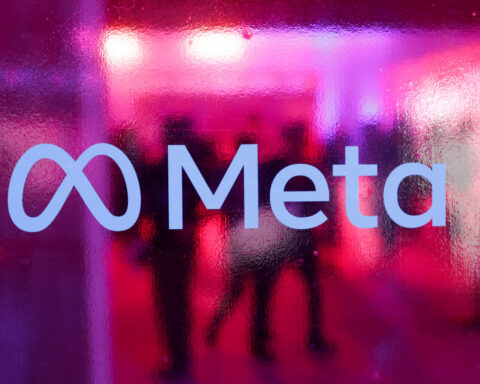Few ideas in business are as misunderstood as DEI.
While opposition to DEI – diversity, equity and inclusion – has a long history, it has picked up steam recently.
In 2023, when Silicon Valley Bank collapsed, detractors claimed that the bank’s focus on DEI was responsible – rather than the bank overinvesting in bonds that suddenly lost much of their value.
Not long afterward, when a wall panel detached from an Alaska Airlines flight at 16,000 feet, opponents claimed without evidence that DEI’s corrosive effects were to blame.
More recently, when a cargo ship lost power and slammed into Baltimore’s Key Bridge, critics suggested that DEI was somehow at fault.
In the face of these attacks, many company leaders are troublingly silent about their commitment to DEI. I believe this is a mistake. It allows misrepresentations to take root, and it reinforces the exclusion and marginalization many workers of color already experience.
As a sociologist who focuses on race, gender and work, I believe this is a pivotal moment for companies to reinforce their commitment to DEI.
A history of DEI
For starters, it’s useful to take stock of how American companies moved to DEI in the first place, and how diversity practices are typically structured.
For the overwhelming majority of U.S. history, workers who weren’t white men weren’t just legally banned from leadership roles; they could be barred from holding any role in an organization.
The formal exclusion of women of all races and men of color didn’t become illegal until the passage of the Civil Rights Act of 1964. That means that for nearly 200 years after the country’s founding, white men had virtually unrestricted and exclusive access to the levels of power in all organizations.
The objective, meritocratic past that DEI critics imagine is thus a myth. The centuries-long, systematic exclusion of white women and people of color gives lie to the idea that jobs have historically gone only to the most qualified.
After the Civil Rights Act, companies moved to address the new reality that the racial and gender discrimination that had been practiced with impunity for generations was now illegal. Affirmative action policies were one way organizations sought to address past and ongoing discrimination, and many companies, at least for a time, sought to close racial and gender disparities.
But by the 1980s, backlash to these goals was ascendant. Legal decisions such as the Supreme Court’s 1978 Bakke ruling allowed organizations to consider race as one of many factors when they evaluated applicants but specifically outlawed the use of quotas. Companies could thus consider race as part of a package but, contrary to popular opinion, could not hire candidates simply because they were Black (or from another marginalized group).

They could, however, consider diversity as a compelling interest that justified using race as one of a variety of factors in making decisions about hiring. A company that had no Black workers on its entire staff could thus seek to diversify, taking race into account alongside experience, qualifications, education and other criteria when considering a candidate.
What this hypothetical company could not do is simply hire a Black worker based exclusively on their race.
Diversity initiatives today
In the wake of ongoing backlash, most companies today have moved even further from trying to alleviate ongoing racial and gender disparities. Instead, they embrace the form of DEI that’s under harsh criticism today.
But today’s DEI doesn’t necessarily entail a focus on hiring or promoting more Black workers. It doesn’t even always focus on race. Instead, many DEI managers have sought to focus their efforts more broadly on diversity of thought, region or opinion as a way to avoid the kind of pushback they’re encountering today.
Additionally, companies often rely heavily on DEI practices such as mandatory diversity training or brief workshops with external consultants that actually depress the numbers of Black workers – and other workers of color – in leadership roles.
Today’s critics cast DEI as unfairly advantaging unqualified Black workers, but the reality is that companies stopped focusing on closing racial disparities long ago.
The numbers bear this out. While white men constitute only 30% of the U.S. population, as of 2017 they made up 80% of members of Congress, 85% of corporate executive officers, 95% of Fortune 500 CEOs and 97% of heads of venture capital firms.
The business case for diversity
Clearly, DEI is not reshaping America’s most powerful institutions in a way that places significant numbers of Black workers in leadership roles.
Instead, researchers know that obstacles such as hiring discrimination, wage inequality, hostile organizational cultures and blocked routes to advancement still persist for highly qualified, skilled and motivated Black workers.
The irony is that the data shows very clearly that diversity is correlated with clear benefits to organizations. Companies with more racial and gender diversity among managers boast more profitability and more innovation than those without. They have advantages in recruitment, employee satisfaction and responding to market changes and consumer needs.
Organizations that are genuinely committed to DEI aren’t losing sight of the big picture; rather, they’re investing in their long-term financial success.
For purely self-interested reasons, then, companies should be offering a full-throated defense of DEI. Instead, they’ve been in retreat.
For example, law firms are walking back programs designed to attract lawyers of color, even though the legal profession is overwhelmingly made up of white workers. Similarly, efforts to increase venture capital funding to Black women are under attack, even though in 2018 less than 1% of a total of US$130 billion raised went to firms headed by women of color. And major tech companies are shifting resources away from post-2020 investments in DEI, even though Black workers remain significantly underrepresented in that industry as well.
DEI practices that work
It doesn’t have to be this way. Companies can still rely on evidence-based DEI practices that show results. One approach involves establishing mentoring programs that are open to everyone. Another is cross-training workers so they can build their skills in various parts of a company while at the same time broadening their networks. And a third tack includes investing in flexible, family-friendly workplace policies that send a message to workers that they and their needs matter.
None of these programs are reserved for members of any particular racial group, so they’re within the bounds of the law. The beauty of this approach is that even though these initiatives are race-neutral, research indicates they benefit workers of color more than mandating annual diversity training.
In addition to using measures like these that work, I believe it’s important for corporate leaders to stand up for DEI precisely because it’s under threat.
Some are doing this already. Jamie Dimon of JPMorgan Chase recently described himself as a “full-throated, red-blooded, patriotic, unwoke, capitalist CEO” who still plans to maintain the bank’s commitment to DEI, particularly when it comes to the approaches that are shown to net results. The celebrity businessman Mark Cuban has been similarly outspoken in support of DEI, unequivocally describing it as “good for business.”
Given that research shows workforce diversity helps companies boost profits, it’s surprising to me that more leaders don’t take this approach. The alternative is letting a false narrative that imperils their growth go unchallenged.

Adia Harvey Wingfield does not work for, consult, own shares in or receive funding from any company or organization that would benefit from this article, and has disclosed no relevant affiliations beyond their academic appointment.
Source: The Conversation

 Germany sees meat exports to EU continuing after foot-and-mouth case
Germany sees meat exports to EU continuing after foot-and-mouth case
 Parliament speaker to lead Taiwan delegation to Trump's inauguration
Parliament speaker to lead Taiwan delegation to Trump's inauguration
 German economy contracted 0.2% in 2024
German economy contracted 0.2% in 2024
 Middle East latest: Palestinian prime minister says Palestinian Authority should run Gaza in future
Middle East latest: Palestinian prime minister says Palestinian Authority should run Gaza in future
 Nokia signs multi-year patent license agreement with Samsung
Nokia signs multi-year patent license agreement with Samsung
 Irish parties secure 'comfortable majority' for new government
Irish parties secure 'comfortable majority' for new government
 Bayern Munich signs US youngster Bajung Darboe from LAFC
Bayern Munich signs US youngster Bajung Darboe from LAFC
 Novak Djokovic breaks a tie with Roger Federer for the most Grand Slam matches in tennis history
Novak Djokovic breaks a tie with Roger Federer for the most Grand Slam matches in tennis history
 China's RedNote: what you need to know about the app TikTok users are flocking to
China's RedNote: what you need to know about the app TikTok users are flocking to
 Inclusive workplaces are good for morale as well as the bottom line.
Inclusive workplaces are good for morale as well as the bottom line.







